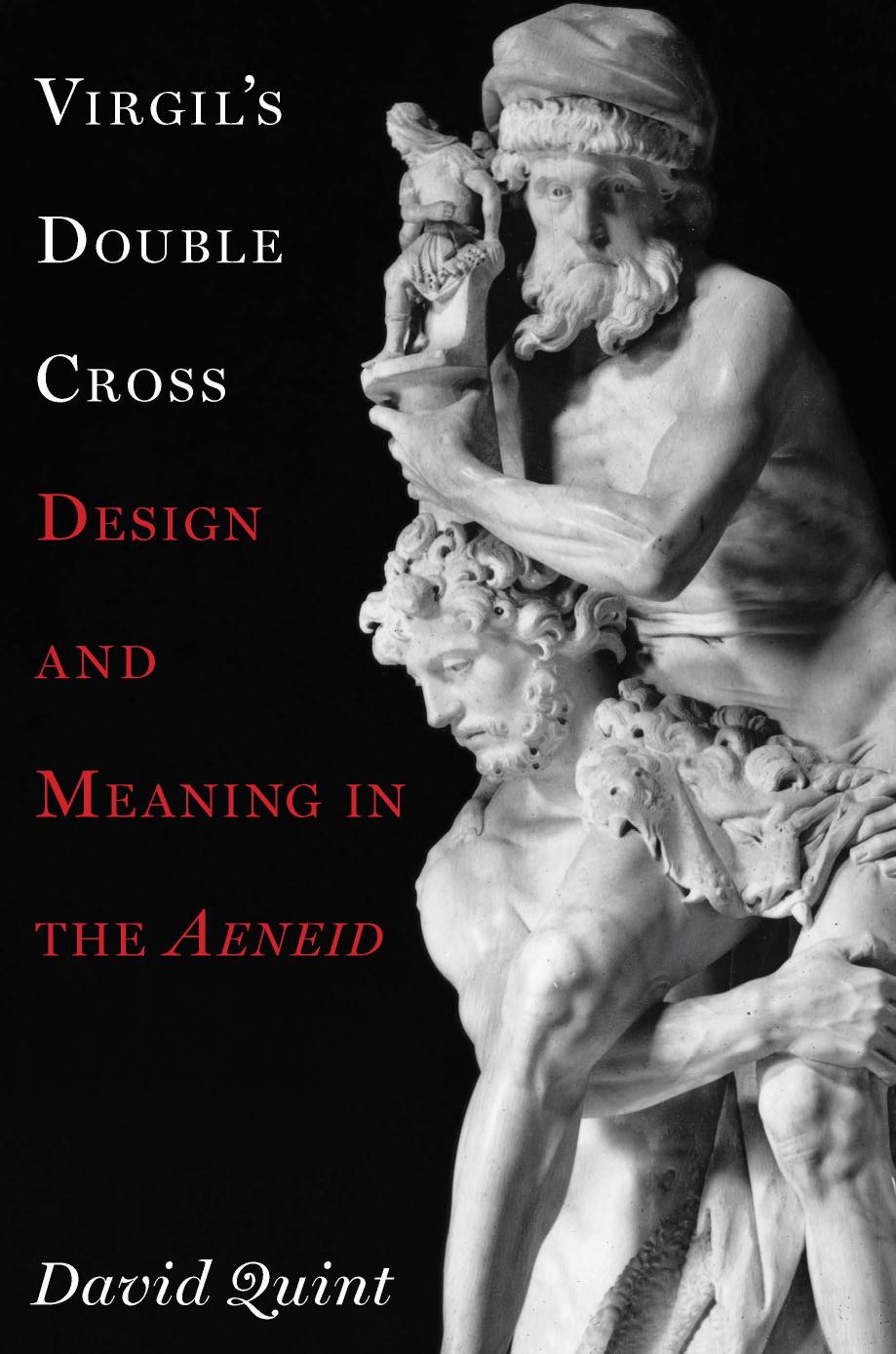Virgil's Double Cross by Quint David

Author:Quint, David [Quint, David]
Language: eng
Format: epub, pdf
ISBN: 9780691179377
Publisher: Princeton University Press
Published: 2018-01-15T07:00:00+00:00
1. On the larger issue of poetic fame and its various paradoxes, see Hardie, 2012.
2. Romulus, but Aeneas perhaps not so much. The deification in store for Aeneas announced by the Aeneid may be a recent construction of Augustan propagandists, such as Varro in his De gente populi Romani, intended to bolster the claims to divine honor that Octavian (Augustus) obtained for Julius Caesar and might expect for himself; see Cole, 2013, 194–195, who notes that Cicero does not mention Aeneas or Rome’s Trojan (Julian) origins in the De re publica, where he discusses the deification of Romulus (2.10). Livy (1.2.6) reserves judgment on the matter of Aeneas the god.
3. Virgil’s earlier poetry does the same. How should one read the apprehension of Virgil’s narrator at the opening of the Georgics? He worries that Augustus as a god, that is, after his death, might—out of dire desire for rulership (“regnandi … dira cupido”) and because the Greeks have so many good things to say about the Elysian Fields—wish to conquer and dwell in Tartarus (Georgics 1.36–39). The tone is teasing, but it provides a model for Lucan’s more clearly ironic address to Nero at the beginning of the De bello civili, auguring that emperor’s apotheosis and removal from earth, asap. Virgil suggests to Augustus that he might want to go down to the dead—like everybody else. Or go to hell. If the deified Daphnis of the Fifth Eclogue is a figure of the apotheosized Julius Caesar, he is transparently raised to heaven by poetry: “let us carry Daphnis to the stars”—“Daphnin ad astra feremus” (52)—says Menalcas, and, presto chango, four lines later Menalcas describes Daphnis staring down at the floor of heaven (56).
4. Feeney, 1986, 5–8 discusses the issue of names, both family names and place names in Book 6, one aspect of the book’s meditation on fame. (The two are related in the giving by both Misenus [6.235] and Palinurus of names [6.383] to the places where they have died.) Feeney points out that the Alban city tellingly named Nomentum (6.773), as yet unbuilt and prophesied by Anchises, had by Virgil’s time fallen into obscurity. Both families and cities, even possibly Rome, may become mere names. On Virgil, Augustus, and divinization, see Thomas, 2001, 45–51. The reading I propose about poetic fame as a substitute for divinization is informed by my earlier study, Quint, 1983, 81–92, of Ariosto’s lunar allegory in Cantos 34–35 of the Orlando furioso, where John the Evangelist, after telling us that Augustus was not so “sainted and benign” as Virgil’s trumpet makes him out to be (35.26), turns his euhemerist logic upon the divine son, Jesus Christ, the product of the literary fame John has made for him (35.29). Virgil, I argue here, already anticipates Ariosto’s desacralizing episode, which targets Dante’s Divine Comedy.
5. Feldherr, 1997, on the Roman colonization of Homer’s underworld.
6. Casali, 1995, connects the Theseus depicted on the doors of the temple to the Aeneas who has abandoned Dido. See also Zarker, 1962. Zetzel, 1989, 270 discusses the alternate stories of Theseus and the underworld.
Download
This site does not store any files on its server. We only index and link to content provided by other sites. Please contact the content providers to delete copyright contents if any and email us, we'll remove relevant links or contents immediately.
4 3 2 1: A Novel by Paul Auster(12357)
The handmaid's tale by Margaret Atwood(7732)
Giovanni's Room by James Baldwin(7305)
Asking the Right Questions: A Guide to Critical Thinking by M. Neil Browne & Stuart M. Keeley(5743)
Big Magic: Creative Living Beyond Fear by Elizabeth Gilbert(5730)
Ego Is the Enemy by Ryan Holiday(5395)
The Body: A Guide for Occupants by Bill Bryson(5066)
On Writing A Memoir of the Craft by Stephen King(4921)
Ken Follett - World without end by Ken Follett(4708)
Adulting by Kelly Williams Brown(4555)
Bluets by Maggie Nelson(4535)
Eat That Frog! by Brian Tracy(4502)
Guilty Pleasures by Laurell K Hamilton(4428)
The Poetry of Pablo Neruda by Pablo Neruda(4082)
Alive: The Story of the Andes Survivors by Piers Paul Read(4011)
White Noise - A Novel by Don DeLillo(3993)
Fingerprints of the Gods by Graham Hancock(3980)
The Book of Joy by Dalai Lama(3962)
The Bookshop by Penelope Fitzgerald(3829)
